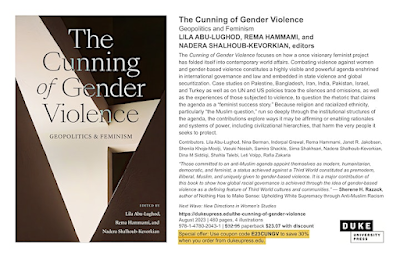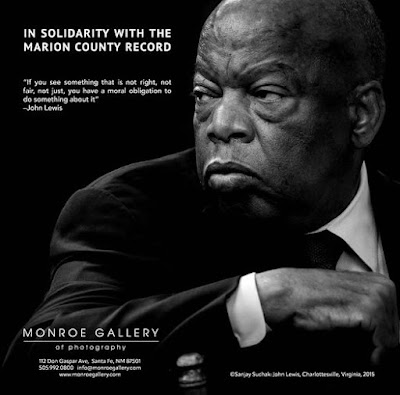Via National Press Photographers Association
September 5, 2023
Sept. 5, 2023 - The New York City Police Department (NYPD) has agreed to historic settlement terms with five photojournalists who were attacked and arrested by NYPD during the racial justice protests of 2020. The agreement reinforces the First Amendment rights of the public and the press, provides new protections for journalists operating in New York, and according to the terms of the agreement will improve police training and reinforce proper behavior toward the press.
The settlement resolves a federal lawsuit brought three years ago by attorneys from the National Press Photographers Association (NPPA), along with the nationally recognized law firm of Davis Wright Tremaine LLP and noted civil rights attorney Wylie Stecklow, on behalf of the five photojournalists, Adam Gray, Jason Donnelly, Diana Zeyneb Alhindawi, Mel D. Cole, and Amr Alfiky.
The agreement includes the following terms:
Journalists with press credentials issued by New York City’s Mayor’s Office of Media and Entertainment (MOME) will not need to leave the area when an order to disperse is issued to the general public and members of the press will not be subject to arrest for documenting police activity or for not leaving the general area;
NYPD will not arrest journalists with government-issued credentials for alleged low-level offenses (such as disorderly conduct or obstructing governmental administrations) without prior approval by an incident commander or a Deputy Commissioner, Public Information official. Any summons for such arrests will presumptively be issued to the journalist on site instead of at a police station, thereby discouraging the practice of unlawfully detaining journalists at police stations for hours before charges against them are dropped;
NYPD officers are prohibited from arresting, restricting, or interfering with members of the press for merely observing or recording police activity in public places;
NYPD will recognize the legitimacy of press passes that are issued by jurisdictions outside New York City;
NYPD is required to provide journalists with access “to any location where the public is permitted,” and NYPD officers are barred from putting up crime/accident/incident scene tape or establishing “frozen zones” for the purpose of preventing members of the press from viewing or recording events in public places;
Neither a press pass nor any other form of press identification is needed to observe or record police activity occurring in public places, including areas where protests, crimes, or other matters of public concern are taking place.
In the agreement, the NYPD also—for the first time ever—formally acknowledges that the press has a clearly established First Amendment right to record police activity in public places, and commits itself to respect that right. (See Settlement Agreement, ¶¶ 14, 89.) No press pass or other form of identification is needed to exercise this right. Pursuant to the agreement, the agency will update its guidelines, amend its current policies and training and will specifically train members of the service on treatment of the press and the clearly established right to record police activity in public. The agreement also makes clear that the increased protection for members of the press does not in any way diminish the right of citizens to record police activity in traditional public places.
“Journalists are an essential part of a functioning, civil society and it’s essential that they be allowed to conduct their work free of harassment and assault, especially from state actors,” said Mickey H. Osterreicher, general counsel to the NPPA. “On behalf of our members and all visual journalists, who perform a vital role as watchdogs and witnesses to history, I am very pleased with the terms of this agreement and the changes to police behavior that it demands.”
“This is not an agreement that will simply sit on a shelf,” added NPPA deputy general counsel Alicia Calzada. “It has real teeth and real mandates for improved training of police at all levels. We are hopeful this will truly change law enforcement culture when it comes to First Amendment activities.”
Attorney Robert D. Balin, who led the litigation for Davis Wright Tremaine accentuated the importance of the case. “The treatment that our clients received at the hands of the NYPD was not only unconstitutional, it was unconscionable, and a direct threat to our democratic principles,” Balin said. “I’m proud that these brave photojournalists chose to hold the police department accountable for their actions and I look forward to seeing the terms of this far-reaching settlement implemented for the benefit of all journalists.”
In addition to the policy changes, the settlement agreement also requires that the NYPD provide extensive annual training to all of its officers—ranging from Police Academy cadets to high-ranking executive personnel—on the First Amendment rights of the press and establishes a police-media relations committee to monitor and discuss future incidents involving the press. Additionally, for a period of three years, a committee headed by the New York City Department of Investigation will monitor police activity at protests to ensure that the NYPD complies with its commitments to respect the rights of peaceful protesters, journalists, and legal observers.
While pervasive mistreatment of journalists covering the George Floyd protests was the catalyst for the civil rights suit (see, Testimony of NPPA General Counsel Mickey H. Osterreicher June 15, 2020, OAG Hearing on Interactions Between NYPD and the General Public, p. 207), the scope of the agreement they ultimately hammered out with the NYPD reaches much further. The provisions in this settlement agreement related to the press are not limited to protest situations, but are crucial First Amendment principles that apply whenever members of the press are covering police activity in public.
“The NYPD’s abuse of the media has been a systemic issue for decades, and today’s injunctive settlement hopefully provides a brighter future for protest and the ability of the press and public to document police interactions at First Amendment activities and beyond in this great City,” said Wylie Stecklow, who in addition to his work on this case, regularly represents photographers and protesters whose rights have been violated by the NYPD. “But today’s announced settlement is not the end, it’s just the beginning of re-training and new NYPD policies to ensure there is respect and protection for the press, up and down the NYPD hierarchy. We cannot expect the rank and file to follow these rules related to the respect of First Amendment rights of the media, if high ranking officers are able to violate the rights of the media with impunity and immunity.”
The five plaintiffs in the case are award-winning visual journalists who have published their work in a variety of leading global news outlets, including Reuters, The New York Times, The Times of London, The Guardian, The Wall Street Journal, National Geographic, Paris Match, Le Monde, CNN, BBC, The Atlantic, Rolling Stone, and more.
Adam Gray, former chief photographer for the British press agency South West News Service and repeat recipient of the Photographer of the Year Award by the British Press Photographers’ Association, was the first plaintiff to join the case following his wrongful assault and arrest while covering the protests. He was pushed to the ground without warning, arrested, and detained overnight while covering protests in and around Union Square. “I’m extremely grateful for the no-cost representation provided to me and the other news professionals by Rob, Mickey, Wylie and their teams,” said Gray. “These protests happened during a critical inflection point for U.S. society and I am hopeful this settlement will mark a major change in New York’s police culture as well.”
Jae Donnelly, a well-known photographer, and regular contributor to The Daily Mail, was violently assaulted by a baton-wielding officer while photographing protestors in the Hell’s Kitchen neighborhood. “Our lawsuit has fought to change the NYPD rule book on how NYPD from top to bottom treat us news gathering professionals with the professional courtesy,” said Donnelly. “We deserve to be kept safe before one of us is eventually killed at work. My attack by an NYPD sergeant put myself and my family through much pain,” he added.
Amr Alfiky —who was arrested while photographing police activity on the Lower East Side in February 2020, and, in a second incident, violently attacked by an officer while covering protests at the Barclay’s Center in Brooklyn—celebrated the agreement. “This settlement is indeed historic and goes beyond the compensation for the profound damage caused by excessive use of force and unlawful arrests towards visual journalists and photographers in New York City,” he said. “Hopefully, this is the start of a new era of how journalists are perceived and treated by NYPD.” Alfiky is now a staff photographer for Reuters in the Middle East.
Diana Zeyneb Alhindawi, a renowned documentary and news photographer, who was hit in the face by a baton-wielding officer while photographing police beating a young man in Lower Manhattan said, “as a photographer working in conflict zones around the world, I was stunned when the NYPD struck me with a baton, splitting my lip, when I was simply doing my job on the public streets of NYC a few days after the murder of George Floyd. It was the first time I'd suffered an injury while on the job, and it wasn't in war-torn Congo or South Sudan, but in the New York City. I'm glad to see that in the USA, however, when the rights of the press are so egregiously infringed upon, there is a legal system that can come to our support. I do hope our trial will move things in the right direction for us journalists to be able to do our jobs without fear of unlawful arrest or harm, and ultimately for freedom of the press and a more just society.”
Mel D. Cole, a widely published visual journalist and music photographer, was documenting police-protester clashes from the Brooklyn Bridge footpath when he was arrested, stripped of his cameras, and held for seven hours. “Going to jail for doing your job as a photographer should never ever happen. I'm happy that I can now put what should have never been behind me, but I will never forget the feelings that I had that day while being handcuffed and not being able to free when I should have been!” he said.
These terms are all part of a larger settlement announced today of claims that were brought on behalf of peaceful protestors by the New York Attorney General’s Office, the New York Civil Liberties Union, The Legal Aid Society, Gideon Orion Oliver, and civil rights firms Cohen & Green and the Aboushi Law Firm. The NPPA had previously filed public comments and testified during public hearings regarding the mistreatment of the press during the 2020 protests. Along with the agreed upon terms of the settlement, the photographers will all receive monetary compensation.
This significant civil rights litigation was supported by NPPA counsel Osterreicher and Calzada and a team that consisted of Davis Wright Tremaine counsel Robert D. Balin, Abigail Everdell, Alison Schary, Kathleen Farley, Alexandra Settelmayer, Nimra Azmi, Megan Amaris, Jean Fundakowski and Veronica Muriel Carrioni, and paralegal Megan Duffy, along with attorney Wiley Stecklow of Wylie Stecklow, PLLC.
About the National Press Photographers Association NPPA is a 501(c)(6) non-profit organization dedicated to the advancement of visual journalism in its creation, editing, and distribution. NPPA’s members include video and still photographers, editors, students, and representatives of businesses that serve the visual journalism community. Since its founding in 1946, the NPPA has been the Voice of Visual Journalists, vigorously promoting the constitutional and intellectual property rights of journalists as well as freedom of the press in all its forms, especially as it relates to visual journalism. For more information, go to nppa.org.
Photojournalists settle long fought case against the NYPD (nppa.org)




